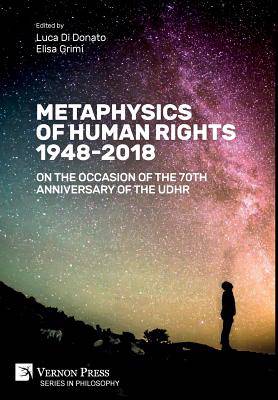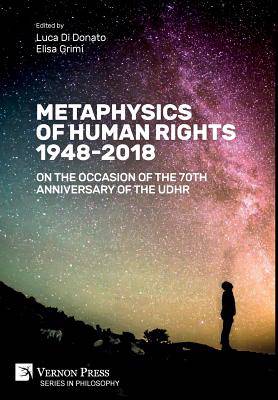
- Afhalen na 1 uur in een winkel met voorraad
- Gratis thuislevering in België vanaf € 30
- Ruim aanbod met 7 miljoen producten
- Afhalen na 1 uur in een winkel met voorraad
- Gratis thuislevering in België vanaf € 30
- Ruim aanbod met 7 miljoen producten
Metaphysics of Human Rights 1948-2018
On the Occasion of the 70th Anniversary of the UDHR
Omschrijving
The 1948 Declaration of Human Rights demanded a collaboration among exponents from around the world. Embodying many different cultural perspectives, it was driven by a like-minded belief in the importance of finding common principles that would be essential for the very survival of civilization. Although an arduous and extensive process, the result was a much sought-after and collective endeavor that would be referenced for decades to come.
Motivated by the seventieth anniversary of the 1948 Universal Declaration of Human Rights and enriched by the contributions of eminent scholars, this volume aims to be a reflection on human rights and their universality. The underlying question is whether or not, after seventy years, this document can be considered universal, or better yet, how to define the concept of "universality." We live in an age in which this notion seems to be guided not so much by the values that the subject intrinsically perceives as good, but rather by the demands of the subject. Universality is thus no longer deduced by something that is objectively given, within the shared praxis. Conversely, what seems to have to be universal is what we want to be valid for everyone.
This volume will be of interest to those currently engaged in research or studying in a variety of fields including Philosophy, Politics and Law.
Specificaties
Betrokkenen
- Uitgeverij:
Inhoud
- Aantal bladzijden:
- 284
- Taal:
- Engels
- Reeks:
Eigenschappen
- Productcode (EAN):
- 9781622735594
- Verschijningsdatum:
- 28/01/2019
- Uitvoering:
- Hardcover
- Formaat:
- Genaaid
- Afmetingen:
- 152 mm x 229 mm
- Gewicht:
- 535 g

Alleen bij Standaard Boekhandel
Beoordelingen
We publiceren alleen reviews die voldoen aan de voorwaarden voor reviews. Bekijk onze voorwaarden voor reviews.










